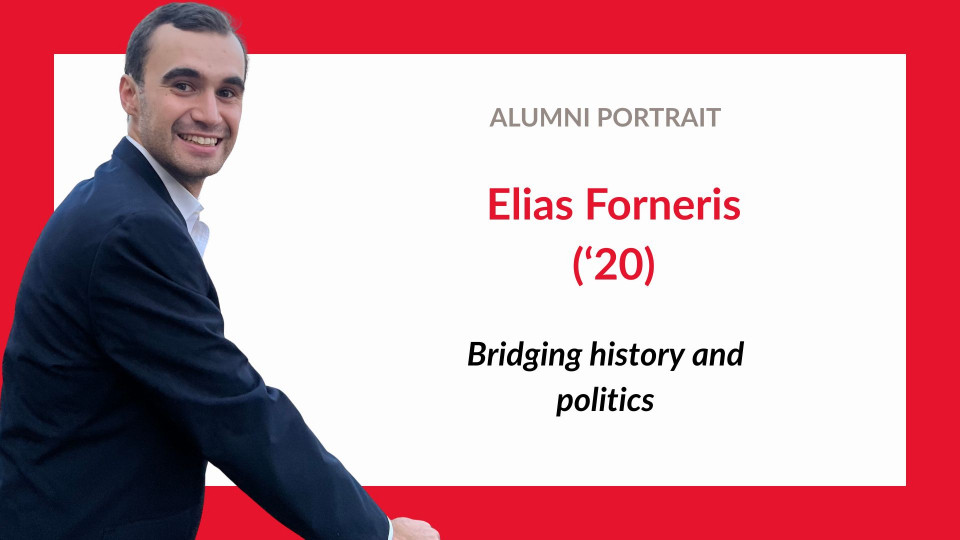Portrait – Elias Forneris (‘20): Bridging History and Politics

Elias Forneris is a PhD candidate in history at the University of Cambridge. He combines academic research with political participation, drawing on a foundation shaped by the Sciences Po and Columbia University Dual BA Program.
Elias Forneris (‘20): Bridging History and Politics
Elias Forneris has focused his career on historical research and political engagement. He is currently completing his PhD at the University of Cambridge studying intellectual history. Alongside his academic work, in 2024 Elias ran as a candidate in the French parliamentary elections representing French citizens in North America.
Elias was raised in Washington D.C. by French and Belgian parents, a background that drew him to the Sciences Po and Columbia University Dual BA Program. He spent his first two years at the Menton campus and then majored in history at Columbia. Looking back, he appreciated “the perfect balance” between the two universities and being a part of a new, non-traditional degree program.
At Sciences Po, he enjoyed the emphasis on the Middle East at Menton, taking Arabic and other classes on the politics and history of the region. He also traveled to Lebanon, the UAE, and Saudi Arabia. He explained, “we were encouraged to go out there and travel and see for ourselves.” In the classroom, Sciences Po offered a more structured approach to learning. The Sciences Po approach combined with more discussion-based seminars at Columbia and independent research at Cambridge; all three teaching styles “complement each other and hopefully make me a more complete historian.”
At Columbia, Elias appreciated the small history classes that were personalized and interesting, leading him to pursue postgraduate studies in history. His master’s at Cambridge allowed Elias to deepen his focus, writing a dissertation on French intellectuals in the UK during World War II. “I was interested in what intellectuals were writing during the war and how exile can impact political thought.”
Elias’ PhD expanded this research to a broader community of 60,000 French and Belgian exiles. “I’m studying how they lived, how they were welcomed by the British, what they were writing at the time, the cultural events and intellectual initiatives they were starting, and how they were preparing to rebuild post-war Europe.” Elias explained that doing a PhD is worthwhile in becoming a real expert in a subject, learning how to write, and bringing personal growth. He hopes to publish a book based on his current research.
In 2024, Elias ran for parliament to represent French citizens living in North America. “I was the youngest candidate, 25 years old at the time, running against a minister in office.” He described the campaign as “a really cool and challenging experience” and it allowed him to meet with hundreds of people. While he didn’t win, he would “definitely do it again, because I can put my experience and history knowledge to use, and do my share against extremism.”
Looking ahead, Elias hopes to stay engaged through both writing and political participation. History remains a vital field to study and engage with, he explained, “it's important to know about our past in order to make sound judgments and understand the politics of the present.”
You can read more about Elias and his work here.

Commentaires0
Veuillez vous connecter pour lire ou ajouter un commentaire
Articles suggérés

